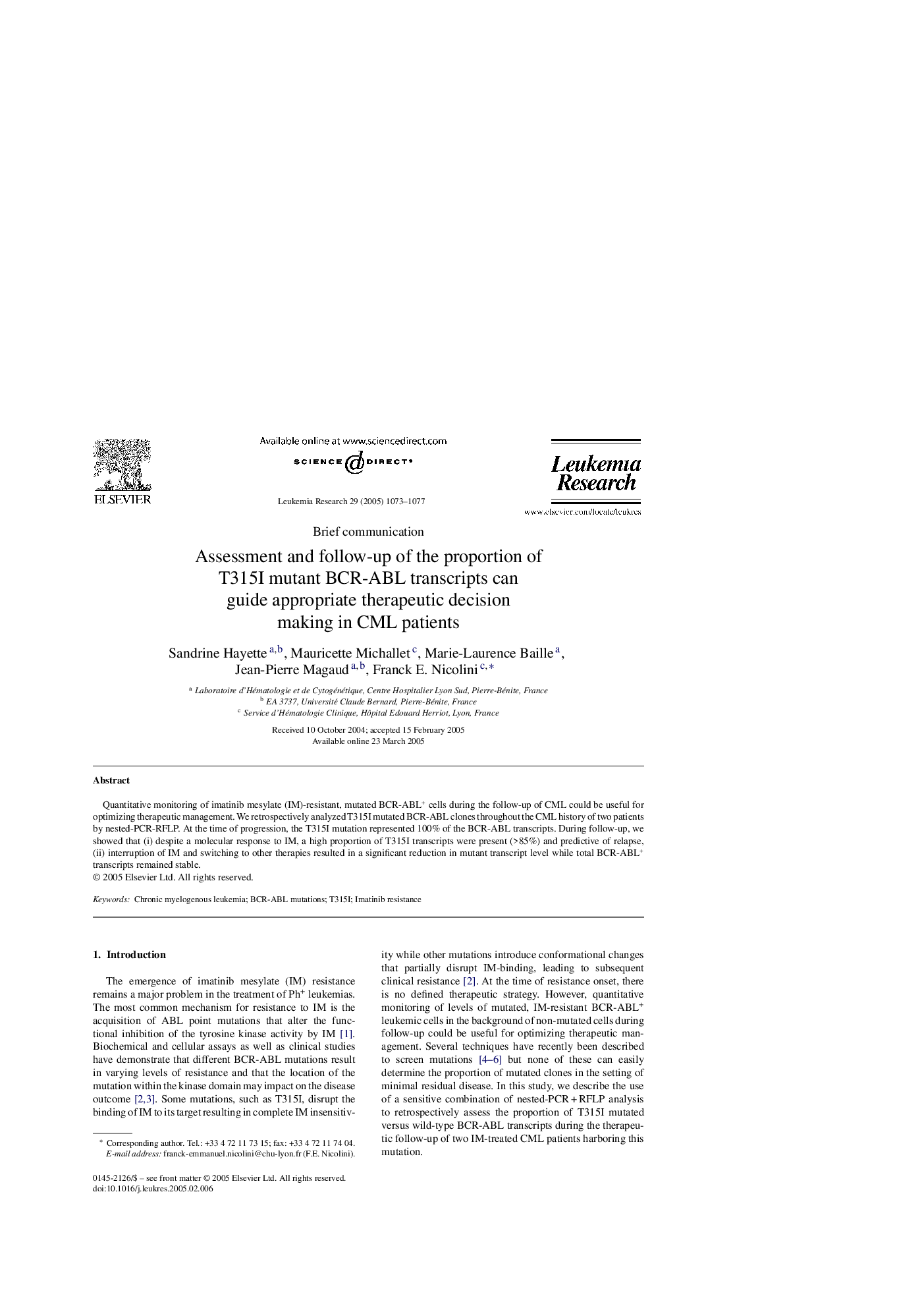| Article ID | Journal | Published Year | Pages | File Type |
|---|---|---|---|---|
| 10909788 | Leukemia Research | 2005 | 5 Pages |
Abstract
Quantitative monitoring of imatinib mesylate (IM)-resistant, mutated BCR-ABL+ cells during the follow-up of CML could be useful for optimizing therapeutic management. We retrospectively analyzed T315I mutated BCR-ABL clones throughout the CML history of two patients by nested-PCR-RFLP. At the time of progression, the T315I mutation represented 100% of the BCR-ABL transcripts. During follow-up, we showed that (i) despite a molecular response to IM, a high proportion of T315I transcripts were present (>85%) and predictive of relapse, (ii) interruption of IM and switching to other therapies resulted in a significant reduction in mutant transcript level while total BCR-ABL+ transcripts remained stable.
Related Topics
Life Sciences
Biochemistry, Genetics and Molecular Biology
Cancer Research
Authors
Sandrine Hayette, Mauricette Michallet, Marie-Laurence Baille, Jean-Pierre Magaud, Franck E. Nicolini,
